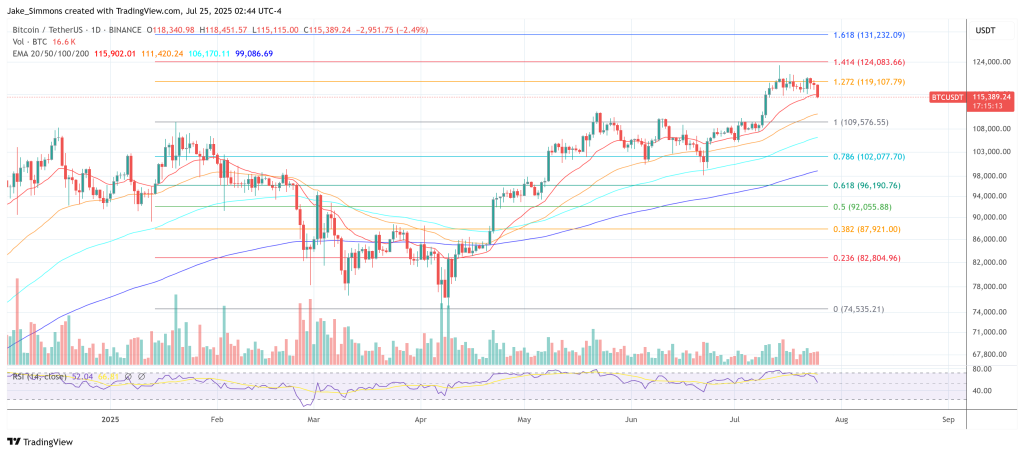The International Monetary Fund has drawn a sharp line under the latest bout of speculation over El Salvador’s Bitcoin strategy, telling reporters that the Central American nation has not added to its sovereign stash. Apparent increases in the Strategic Bitcoin Reserve Fund (SBRF), the IMF said, merely reflect “movements across various government-owned wallets” and leave the country’s overall position unchanged.
Is El Salvador Just Shuffling Bitcoin Wallets?
IMF Communications Director Julie Kozack delivered the clarification during a regular press briefing on Thursday, responding to a question from Inner City Press reporter Matthew Lee. “As we have stated in the past, the total amount of BTC held across government-owned wallets remains unchanged, and that is consistent with El Salvador’s program commitments,” Kozack said, adding that any headline growth in the SBRF “relate[s] to movements across various government-owned wallets.”
The reassurance comes less than a month after the IMF Executive Board completed El Salvador’s 2025 Article IV consultation and first review of its 40-month Extended Fund Facility (EFF). That review unlocked a $118 million tranche, bringing total disbursements under the $1.4 billion arrangement to roughly $231 million. The EFF requires the Bukele administration to keep its net BTC exposure flat while it puts public finances on what the IMF calls “a firm downward debt path.”
Only hours before the IMF’s remarks, El Salvador’s official Bitcoin Office proclaimed on X: “EL SALVADOR JUST BOUGHT MORE BITCOIN,” attaching a screenshot that showed an 8 BTC purchase and a running total of 6,248.18 BTC—worth about $722 million at today’s spot price of roughly $116,000. The post echoed President Nayib Bukele’s long-standing mantra that the country buys “one Bitcoin a day,” a slogan he has repeated since November 2024.
Yet the IMF insists those numbers are an accounting mirage. While the SBRF’s wallet address can show incremental inflows, an equivalent amount is typically debited from other state-controlled wallets—most notably a treasury cold-storage address used by the fiscal agency BANDESAL—leaving the republic’s consolidated position unchanged. “Risks from Bitcoin continue to be mitigated,” Kozack emphasized, praising “solid” overall programme performance, including fiscal and reserve targets “met with margins.”
Under the EFF’s technical memorandum of understanding, El Salvador must cap net crypto purchases by the non-financial public sector at the level in place when the program was approved last February. The objective is to prevent further volatility on a public balance sheet that already carries Bitcoin exposure equivalent to about 2 percent of GDP. Reuters reported in March that the IMF had already warned San Salvador against “adding to government cryptocurrency exposure,” even as officials trumpeted periodic buys.
As of press time, neither President Bukele nor his Bitcoin adviser Max Keiser had responded publicly to the IMF’s statement. The Bitcoin Office account, meanwhile, has not deleted or amended its original post.
At press time, BTC traded at $
